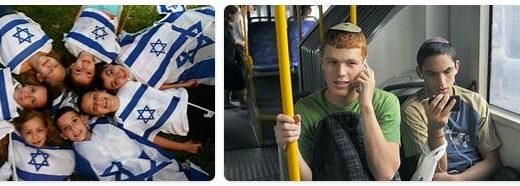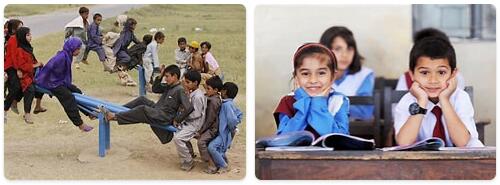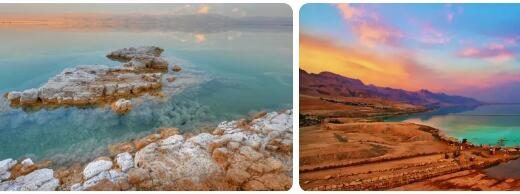Equatorial Guinea Foreign Policy
The states with which Equatorial Guinea maintains active diplomatic relations can be divided into three groups: European states with a colonial past, states that import oil from RG, and some countries, especially in the West and Central African region. The first group mainly includes Spain and France, which together with Germany are the only EU countries to have diplomatic representations on the RG. The relations between Spain and its former colony are quite complicated, as the EC grants political asylum to the fugitive oppositionists from the RG. Countries to which RG exports oil include the USA, China, Japan and South Korea. In the African region, RG maintains relations mainly with Nigeria, Angola, South Africa and Morocco (Moroccan soldiers helped Obiang carry out a military coup in 1979, in return RG recognized Morocco’s claims to Western Sahara in 1980). RG also maintains good relations with Russia, Ukraine, Israel, Lebanon, Turkey, Venezuela, Brazil and Cuba. It has been a member of the Francophonie since 1988, and intends to join the community of Lusophone countries. Although Equatorial Guinea is a CEMAC member country, relations with Gabon and Cameroon are burdened by unresolved border disputes.
Equatorial Guinea is a member country of the UN (United Nations), AU (African Union), NAM (Nonaligned Movement, HNZ – Movement of Independent Countries), WTO (observer), IMF (IMF – International Monetary Fund), AfDB (African Development Bank)., ACCT, ACP, ECA, FAO, FZ, G-77, IBRD, ICAO, ICRM, IDA, IFAD, IFC, IFRCS, ILO, IMO, Intelsat, Interpol, IOC, ITU, OAS (Observer), OPCW, UNCTAD, UNESCO, UNIDO, UPU, WHO, WIPO, WToO (World Tourist Organisation), BDEAC – Development Bank of Central Africa (Banque des Etats de l´Afrique Centrale), Lomé IV.
Equatorial Guinea actively cooperates with the countries of the Gulf of Guinea in the fight against piracy, which is a big issue in the area. The port in Malabo is even an operational base for maritime patrols. However, the country has so far been excluded from joint EU-Africa exercises, including the last one “Grand Nemo”, which took place in October 2018. Equatorial Guinea is interested in participating in EU projects under the EU Strategy for the Gulf of Guinea and the 11th EDF Regional Indicative Programme, such as examples are PASSMAR and PARSIC. She would also like to participate in joint naval exercises with EU member countries. In 2019, a shift in the desired direction can be expected in this area.
On the international scene, Equatorial Guinea has been relatively isolated (among other things also due to minimal trade exchange), however, it is trying to strengthen its legitimacy through frequent contacts with African leaders (mostly CEMAC countries) and the AU, a global diplomatic offensive and recently also with the EU. The result is success in the form of a non-permanent member of the UN Security Council for the period 2018-2019. Equatorial Guinea also gained OPEC membership in May 2017, with oil discovered on its territory as early as 1996, yet the country is Africa’s 3rd largest oil producer. In February 2019, President Obiang was appointed as the Head of the 2019 AU Central Theme: “The Year of Refugees, Returnees and Internally Displaced Persons: Sustainable Solutions for IDPs in Africa” as part of the 32nd African Union Summit.
In addition to Equatorial Guinea’s long-term excellent relations with China and Russia, deeper cooperation with Turkey is also beginning to take shape. This is evidenced by the signing of the Memorandum of Cooperation between the governing PDGE and the Turkish ruling Justice and Development Party (Adalet ve Kalk?nma Partisi – AKP) in February 2019, which followed Obiang’s visit to Ankara in August 2018.
Relations with France have been marked by condemnation since July 2017 Teodorina Obiang. The head of state of Equatorial Guinea, in turn, accuses France of supporting people who wanted to overthrow him in 2017.
Previously above-standard relations with Brazil are currently also marred by Teodorín’s money-smuggling affair and suspicion of meddling in the country’s internal political affairs (support of the criminally prosecuted ex-president Lula da Silva). The former left-wing Brazilian president Inácio Lula da Silva (in power 2003-2011) maintained above-standard relations with the African dictator Obiang. In 2010, both countries signed several intergovernmental agreements on mutual cooperation. Lula supported the admission of Equatorial Guinea to the Community of Portuguese-speaking countries (although Portuguese is only the third language in the country after Spanish and French). In 2015, ex-president Lula also helped Teodorín to quickly leave the country after he was threatened with detention in Rio de Janeiro and subsequent extradition on the basis of an international arrest warrant issued by France, see the case mentioned above. In 2013, Lula’s successor, Dilma Vana Rousseff, forgave several African countries, including Equatorial Guinea, a total of US$900 million in debt in the name of “further strengthening friendly relations”. In return, President Obiang awarded major construction contracts to the Brazilian construction company OAS (closely linked to Lula), not only in Equatorial Guinea, but apparently in other African countries as well. In 2015, Teodoro Obiang Nguema Mbasogo also sponsored the carnival in Rio de Janeiro with over 3 million USD, which is surprising to say the least from a representative of a developing country where, according to public statistics, 57% of the population does not have access to drinking water. In return, President Obiang awarded major construction contracts to the Brazilian construction company OAS (closely linked to Lula), not only in Equatorial Guinea, but apparently in other African countries as well. In 2015, Teodoro Obiang Nguema Mbasogo also sponsored the carnival in Rio de Janeiro with over 3 million USD, which is surprising to say the least from a representative of a developing country where, according to public statistics, 57% of the population does not have access to drinking water. In return, President Obiang awarded major construction contracts to the Brazilian construction company OAS (closely linked to Lula), not only in Equatorial Guinea, but apparently in other African countries as well. In 2015, Teodoro Obiang Nguema Mbasogo also sponsored the carnival in Rio de Janeiro with over 3 million USD, which is surprising to say the least from a representative of a developing country where, according to public statistics, 57% of the population does not have access to drinking water.



